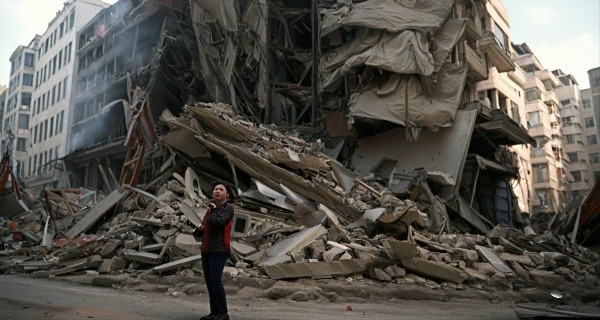Iran’s Plan to Strike Back Against the U.S.
Iran’s Military Preparations Following U.S. Attacks
Loading...

Lebanon and Israel have reportedly agreed to the terms of a ceasefire deal brokered by the United States, officials say.
Introduction
Recent reports indicate that Lebanon and Israel are on the verge of finalizing a ceasefire agreement, facilitated by negotiations led by the United States. With both sides expressing optimism, the potential deal is seen as a crucial step toward stabilizing a region long plagued by conflict.
Progress in Ceasefire Negotiations
According to officials from the U.S. and Israeli sources, a ceasefire deal is nearly completed. A U.S. official was quoted by Axios stating, “We think we have a deal. We are on the goal line but we haven't passed it yet.” The Israeli cabinet is expected to vote on the deal on Tuesday, adding an element of uncertainty to the situation as negotiations continue.
Amos Hochstein, a senior adviser to President Joe Biden, expressed confidence in the negotiations, suggesting that “there is a shot” at securing a ceasefire soon. Israeli Ambassador to Washington, Mike Herzog, echoed this sentiment, stating that a ceasefire could potentially be reached “within days.” However, Herzog acknowledged that there are still “points to finalize” before the agreement can be officially signed.
The Ceasefire Framework
The proposed ceasefire agreement includes a 60-day transition period during which the Israeli military would withdraw from southern Lebanon. In this arrangement, the Lebanese army would be deployed closer to the border, and Hezbollah fighters would move north of the Litani River. Such a framework aims to reduce tensions along the border and establish a more stable security environment.
The international community is closely monitoring these developments. Reports suggest that President Biden and French President Emmanuel Macron may announce a finalized ceasefire deal on Tuesday, reflecting a concerted effort by global leaders to foster peace in the region.
U.S. Officials Weigh In
The White House has confirmed that a deal is “close,” but has refrained from providing specific details. National Security Council spokesman John Kirby remarked, “We believe that the trajectory of this is going in a very positive direction -- but again nothing is done until everything is done.” This cautious optimism underscores the delicate nature of the negotiations, as various factors could still derail the agreement.
Hezbollah's Position
So far, Hezbollah has remained relatively quiet regarding the ceasefire discussions. However, in a recent televised address, Hezbollah Secretary-General Sheikh Naim Qassem indicated that the group has reviewed the U.S.-drafted proposal and provided feedback. Qassem emphasized that the responsibility now lies with Israel and Prime Minister Netanyahu. He stated, “We are operating on two parallel tracks: the battlefield, which progresses in an escalating manner, and negotiations.” This dual approach suggests that Hezbollah is prepared to continue military operations while pursuing diplomatic solutions.
Furthermore, Qassem asserted that Hezbollah would not accept any terms that violate Lebanese sovereignty, indicating a firm stance against any Israeli imposition. He articulated the group's desire for a “complete and comprehensive end to aggression” and the preservation of Lebanon's territorial integrity.
Conclusion
As the negotiations continue, the situation remains fluid. Hezbollah's recent military actions against Israeli forces illustrate their commitment to defending Lebanese territory, while simultaneously engaging in talks for a ceasefire. The upcoming days may prove pivotal, as the Israeli cabinet's decision will determine the trajectory of peace efforts in the region. With both sides expressing a willingness to negotiate, the hope for a lasting ceasefire hangs in the balance, promising a potential shift towards stability in Lebanon and Israel.
Editor
Iran’s Military Preparations Following U.S. Attacks
Troops remain in five strategic locations, raising fears of renewed tensions and long-term occupation.
Opposition forces have taken control of the capital after a significant offensive. Here is how it unravelled.
